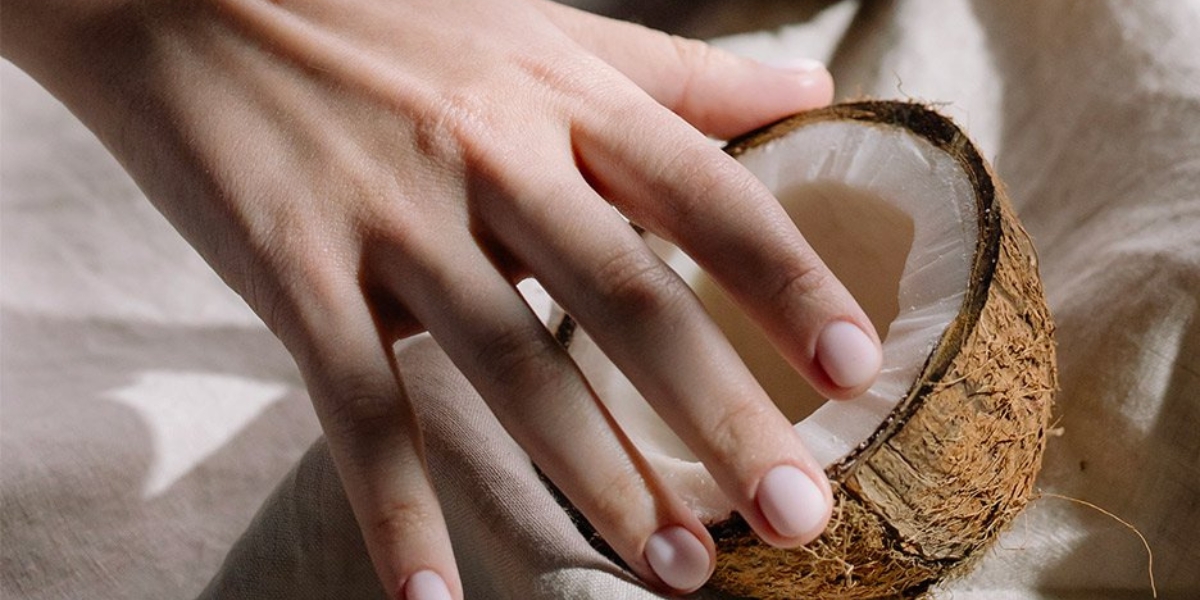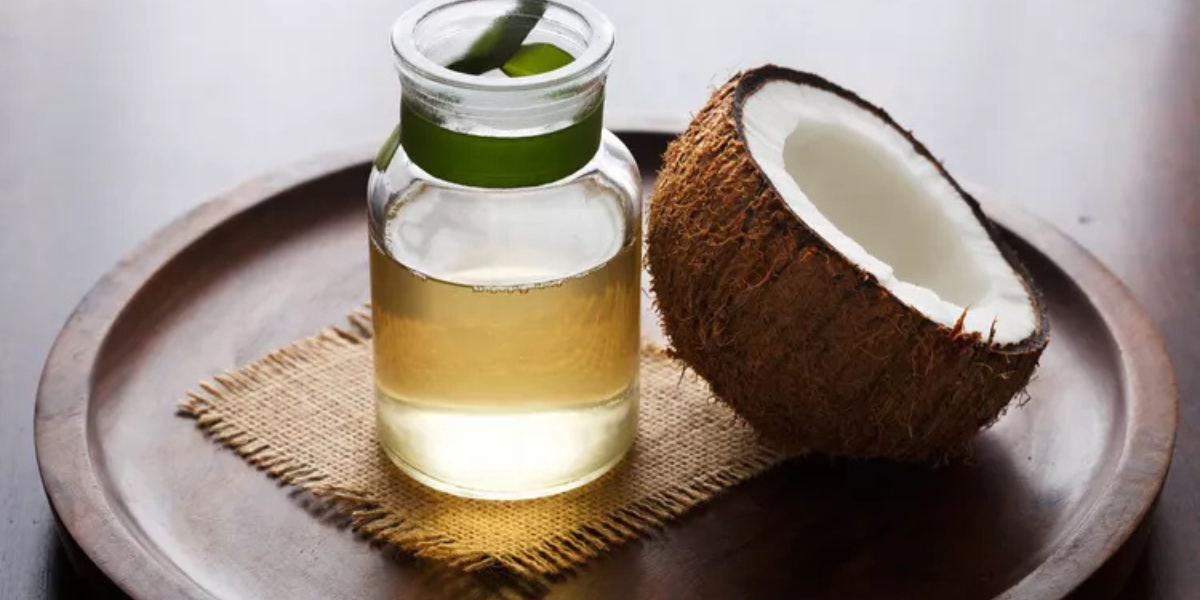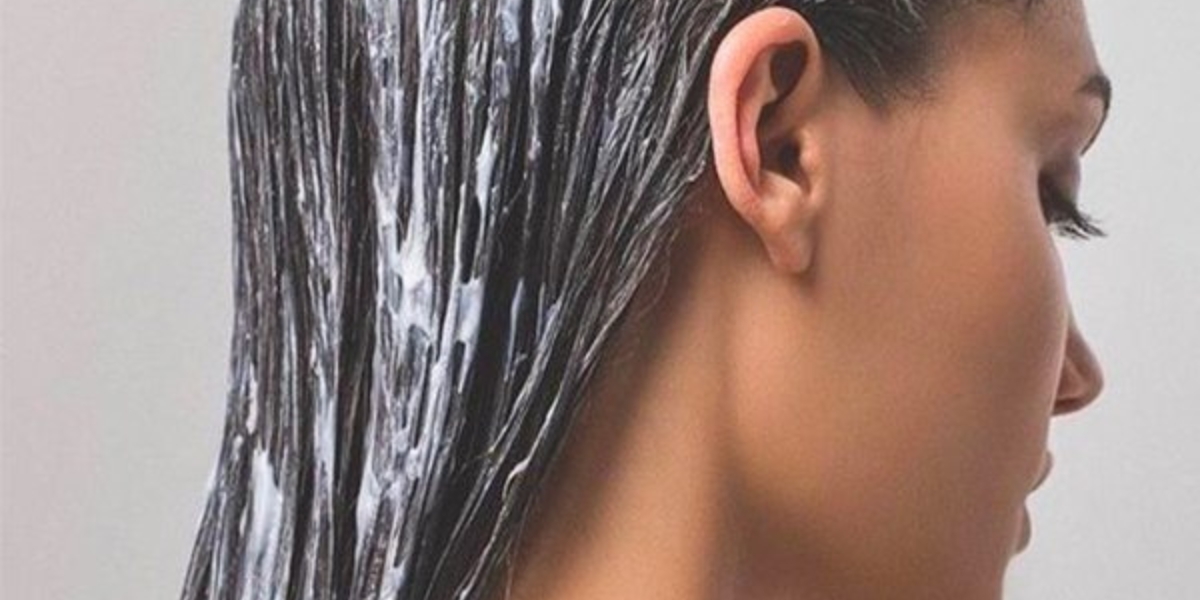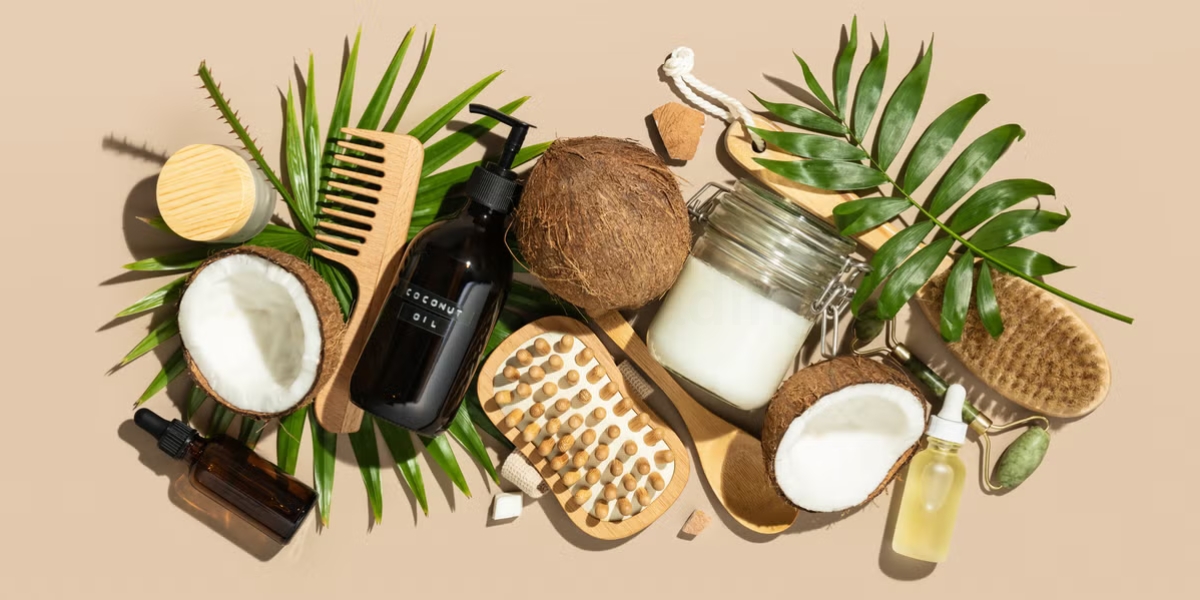Blog
Is Coconut Oil Good for Hair? Discover Its Top Benefits

The exotic, tropical coconut fruit is being lauded over the world as a miracle ingredient to get shiny, healthy hair, incredible skin, and even used as a healthy cooking staple to substitute butter.
If you’ve ever had itchy, dry scalp or damaged hair, you know that treating your hair is a top priority. There are many treatments available for scalp and hair, but what if you want to take a more natural route? What are the benefits of coconut oil for your hair and scalp?
Let’s find out if coconut oil is good for hair.
What’s in Coconut Oil?
Coconut oil is extracted from the coconut and retains many beneficial ingredients. With a mild and sweet taste, coconut oil has natural properties that are helpful for your skin. Dermatologists often recommend coconut oil for its moisturizing and possible anti-aging properties.
Fat content. Coconut oil doesn’t have a high concentration of vitamins or minerals. It has a 100% fat content, with 80% to 90% of that content being saturated fat. This type of fat is a “bad” fat for your diet, but it gives coconut oil firmness not found in other oils. In fact, coconut oil is solid at room temperature, and it begins to melt at around 78 degrees Fahrenheit.
Fatty acids. Lauric acid makes up 47% of the fatty acids in coconut oil. When ingested, lauric acid can contribute to bad cholesterol levels in your bloodstream. When applied to your skin, lauric acid has antimicrobial properties. If you have an open wound, coconut oil helps to kill bacteria, preventing them from causing further damage.
Is Coconut Oil really good for hair?
Coconut oil has seen the highs and lows in its popularity; it was demonized for its saturated fat content, which recent studies refuted. Is coconut oil good for hair? Yes, it is! In fact, owing to the many benefits of coconut oil for hair, it has been rated as the most potent multitasking oils on the scene.
Let’s find out how does using coconut for hair transform dull, lifeless hair into a gorgeous, luscious mane. Its rich fatty acids and moisturizing abilities are said to help tackle everything from dry, brittle hair to a flaky, itching scalp, and many are even starting to use it as a natural way to tackle frizz.
How Does Coconut Oil Improve Hair and Scalp?
Provides a barrier. Even though coconut oil doesn’t have a high nutrient content that provides specific benefits when applied topically, it does protect your scalp and hair. For the scalp, the barrier created by coconut oil blocks bacteria and irritants from causing more damage. You’ll want to determine the cause of your scalp condition or breakage so you can prevent it in the future.
Moisturizes. The lauric acid in coconut oil has nourishing properties that are especially prone to soak into the strands of your hair. Coconut oil absorbs into your hair quickly, providing moisture to tame frizz and heal breakage.
5 Benefits of Using Coconut Oil for Hair
Coconut oil is known for its high fat content and nutty flavor. Coconut oil is great for hair in particular because it has a high concentration of lauric acid, a kind of fat that your hair can easily and quickly absorb. Lauric acid provides moisture to help nourish hair and tame frizz so you can maintain a glossy sheen and healthy texture.
“It’s quite normal for untreated hair to dry and become brittle, and hair, especially long hair, can rarely provide itself with enough moisture and nutrients from within.
Plus, if you’re an avid hot tools user (think hair dryers, curling irons or flat irons), roughly brush your hair or spend time in the sun, you’re likely causing more damage to your hair. Treating your hair regularly with coconut oil or using a coconut oil hair mask are good solutions for adding much-needed moisture to your locks.
How to Prevent Hair Loss, According to Experts:
Coconut oil is a hero for repairing damaged hair, which can be caused by poor nutrition (being deficient in protein, healthy fats and certain vitamins and minerals), excess heat exposure, aggressive pulling or brushing, overusing hot tools and more. Here are some benefits of using coconut oil for hair:
1. It Can Help Repair Split Ends
When your hair gets super dry and brittle, you’re more likely to notice the ends start to break apart and split, which is where the term “split ends” comes from. Using coconut oil for hair can help heal those split ends and also help prevent them from occurring.
2. It Can Make Hair Shiny and Smooth
Lauric acid, coconut oil’s primary fat source, will impart shine to hair and give it a smooth, soft touch. Plus, coconut oil also has other vitamins and fatty acids to help hair look and feel healthy and get rid of any sebum buildup.
3. It Can Help Fight Dandruff
In addition to hydrating and repairing hair, coconut oil can also decrease the appearance of dandruff. A 2018 study in the International Journal of Molecular Sciences shows that coconut oil has an antibacterial, anti-inflammatory and antioxidant effect, and it can also help with repairing the skin barrier. Dandruff can be caused by a variety of things (such as dry scalp, dermatitis, fungus and more), but a 2021 study published in Scientific Reports shows that coconut oil can help treat dandruff by boosting your skin’s “good” bacteria, taming inflammation and even fighting dermatitis.
4. It Strengthens the Cuticle
Coconut oil is great for your hair’s overall health because it heals damaged hair by softening, hydrating and strengthening those brittle, broken strands. It also strengthens the hair’s cuticle, which will help protect hair from environmental toxins and keep it healthier in feel and appearance. As a result, this reduces environmental and heat damage until you wash it out, all because a cuticle that’s well saturated with moisture is more resilient to all the external impacts.
5. It Tames Frizz
Coconut oil in a hair serum or mask can also help eliminate frizz. Davis says, “The cuticle-smoothing properties of coconut oil make it an effective anti-frizz remedy.” Using coconut oil on an especially humid day can help your hair stay frizz-free for longer.
Ways To Use Coconut Oil as Hair Care
Coconut oil is one of the most versatile hair care oils around. It can work wonders for dry, damaged, or color-treated hair of all types. Ways to incorporate it into your routine include:
1. Prewash protector:
When applied before shampooing, coconut oil can prevent hair from soaking up too much water, which helps stave off damage and dryness. Apply coconut oil about 15 to 30 minutes before washing your hair, concentrating on the midsection to the ends of your hair.
2. Conditioner:
Coconut oil may help strengthen the hair shaft and prevent breakage. You can use it instead of standard conditioners, or add a few drops to your usual conditioner.
3. Styling aid:
A small amount of coconut oil can help to tame frizz. For easier absorption and styling, make sure to apply the oil to damp hair.
4. Hair mask:
For a super-nourishing hair treatment, massage a teaspoon or two of coconut oil through your hair. Leave it on overnight or wash it out after a few hours.
5. Sun protection:
Coconut oil may help to protect your hair from sun damage caused by ultraviolet light exposure (though more research is needed).
Tips for Using Coconut Oil Effectively
To make the most of using coconut oil in your hair care regimen:
- Warm the oil first: Coconut oil can be easier to use if you warm it before applying. To melt solidified coconut oil put a teaspoon of oil into a cup and place the cup into a bowl partially filled with hot tap water. You can also rub a teaspoon of oil between your hands to melt it. Avoid microwaving coconut oil to prevent dangerous overheating.
- Make a blend: Add a few drops of essential oils, like lavender or peppermint, to your coconut oil for extra aromatherapy benefits. Or, blend coconut oil with hair-nourishing natural ingredients like yogurt, honey, or avocado.
- Use it at night: It takes time for hair to absorb coconut oil. If you use it in the morning, your hair can look and feel greasy. Instead, apply it at night, then shampoo in the morning.
- Apply lightly: Although lightweight, coconut oil can weigh your hair down. To avoid buildup, start with a small amount—no more than a teaspoon, unless your hair is thick—and gently massage through your hair, starting at the midsection and continuing to the ends.
- Don’t clog your scalp: Applying coconut oil directly to the scalp can alleviate dryness and dandruff symptoms. But, it may cause irritation and clogged pores. If you haven’t used coconut oil on your scalp, start with a small amount over a small area, to test how your skin reacts.
- Shampoo twice: When it is time to remove coconut oil from your hair, a second shampoo may be necessary to eliminate slickness.
- Rotate oils: People with coarse hair textures may find that repeated use of coconut oil leads to hair stiffness. If so, rotating coconut oil with other oils (like argan, avocado, or castor) may help.
Is Lemon Good for Hair? Benefits, Risks & How to Use It
Summary
Coconut oil stands out as a versatile and effective natural remedy for a variety of hair concerns. Its high concentration of lauric acid allows it to penetrate hair strands, providing deep moisture and repair to dry, brittle hair while also taming frizz and enhancing shine. Additionally, coconut oil can support scalp health by fighting dandruff and strengthening hair cuticles against damage from environmental factors.
To reap the full benefits, consider incorporating coconut oil into your hair care routine as a prewash treatment, conditioner, or nourishing hair mask. Start with small amounts to gauge how your hair and scalp respond, and feel free to mix it with other natural ingredients for added benefits. With regular use, coconut oil can help transform dull, lifeless hair into a vibrant, healthy mane, making it a valuable addition to any hair care regimen.
Is Mustard Oil Good for Hair? Learn Its Top 7 Benefits




